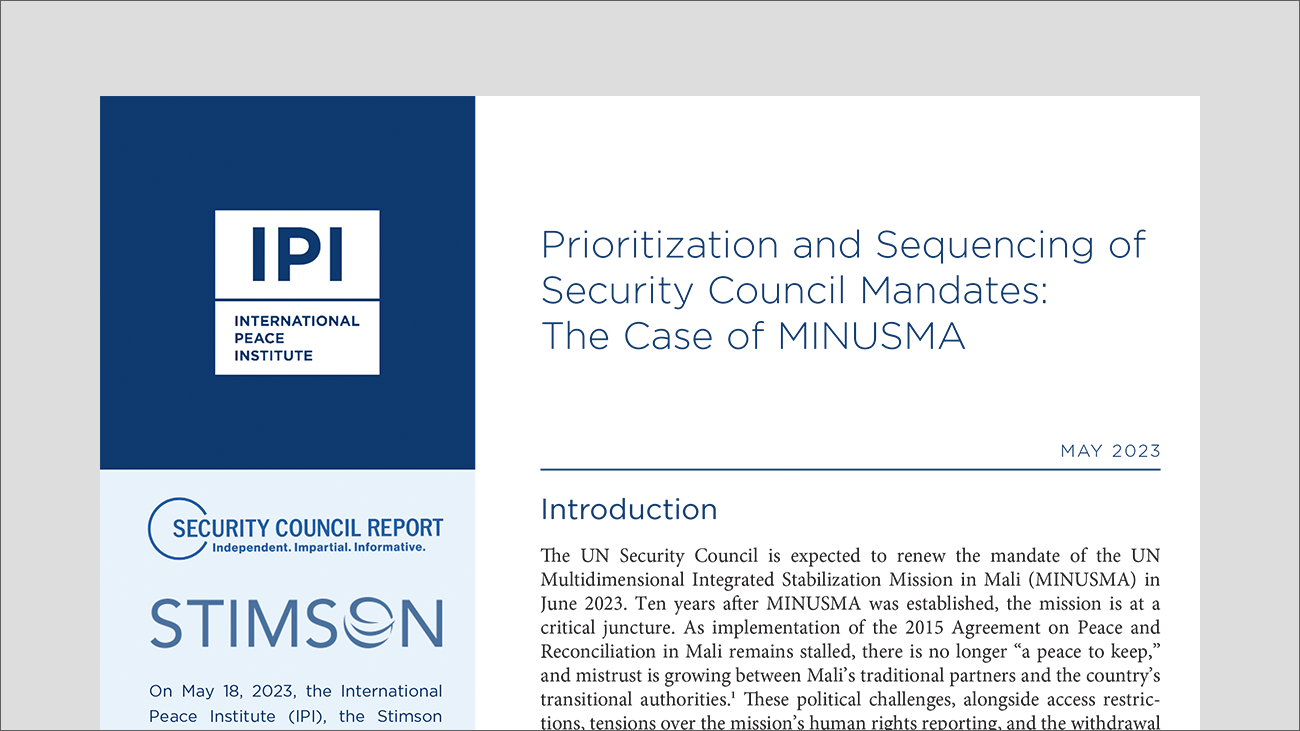
The UN Security Council is expected to renew the mandate of the United Nations Multidimensional Integrated Stabilization Mission in Mali (MINUSMA) in June 2023. Ten years after MINUSMA was established, the mission is at a critical juncture. As implementation of the 2015 Agreement on Peace and Reconciliation in Mali remains stalled, there is no longer “a peace to keep,” and mistrust is growing between Mali’s traditional partners and the country’s transitional authorities. These political challenges, alongside access restrictions, tensions over the mission’s human rights reporting, and the withdrawal or planned withdrawal of some countries’ peacekeeping contingents, have undermined the mission’s ability to implement its strategic priorities. The upcoming negotiations will also unfold in the context of broader geopolitical tensions in the Security Council.
In this context, the International Peace Institute (IPI), the Stimson Center, and Security Council Report co-hosted a roundtable discussion on May 18, 2023. This roundtable offered a platform for member states, UN officials, civil society stakeholders, and independent experts to share their assessments of the situation in Mali in a frank and collaborative manner. The discussion was intended to help the Security Council make more informed decisions on the prioritization and sequencing of MINUSMA’s mandate, as well as the mission’s strategic orientation and actions on the ground.
Participants largely agreed that MINUSMA’s mandated priorities are still relevant to the UN’s overall engagement in the country, even amid security concerns and difficult negotiations with the host state. They recommended that the Security Council focus on providing guidelines for the maintenance of the current number of uniformed personnel with a focus on strategic priorities and a consolidated footprint. In renewing MINUSMA’s mandate, the council will likely need to consider the following issues:
- Prioritizing the identification of new troop-contributing countries (TCCs) to ensure the mission is operating at full capacity, particularly countries with strong self-protection capabilities;
- Continuing to engage with the host state where possible, including in de-confliction of troop movements, training on human rights, election support, and support to the stabilization strategy for central Mali;
- Promoting host authorities’ compliance with the status of forces agreement (SOFA) and ending restrictions on flights and ground movements;
- Working to rebuild commitment to the 2015 Agreement for Peace and Reconciliation among the signatory parties and stepping up engagement on cease-fire monitoring mechanisms;
- Considering shifting toward a more mobile posture that could allow the mission to be more proactive in protecting civilians while reducing the resources devoted to self-protection;
- Remaining committed to the mission’s human rights mandate and adherence to the Human Rights Due Diligence Policy; and
- Investing further in strategic communications and community engagement initiatives to clarify the mission’s mandate and counter negative narratives about the mission, including in parts of the country where the mission is less active.







